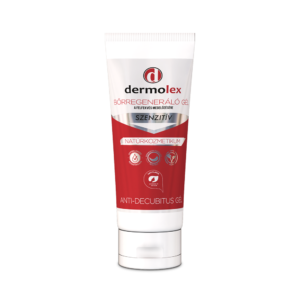In order to maintain proper skincare it is essential to understand the different skin types and to know your personal skin type. Different types of skin require different anti aging skincare routines. In this article we will familiarize you with the various skin types, help you to identify your type, and advise you on how to best care for your specific skin type.
Understanding Skin Types
Thanks to the beauty industry, most people are familiar with the five skin types: normal, dry, oily, combination, and sensitive. However, many people aren’t aware of what causes one skin type instead of another.
The short answer is that your genetics determine your skin type, but there are multiple environmental factors that can affect your skin as well:
- Smoking: tobacco smoke dries the skin, causes premature aging and deep wrinkles, degrades collagen levels, and is associated with many skin disorders (such as psoriasis).
- Climate and Environment: heat, cold, humidity, allergens, and pollution can have a negative impact on the condition of your skin.
- UV radiation: sun exposure and/or tanning beds cause photoaging which leads to wrinkles, a loss of skin elasticity, the development of dark spots, and is linked to skin cancer.
- Diet: studies have shown that sugar and high-fat foods can contribute to acne.
- Lack of hydration: dehydrated skin can be dry, itchy, and have a dull appearance.
- Stress: chronic stress has been linked to acne, bags under the eyes, dry skin, rashes, and wrinkles.
In addition to these factors, your skin type can also change over time. As you age, your body goes through different hormonal changes. During puberty hormones stimulate the oil glands causing increased sebum production, which can clog the pores and cause blemishes. Later in life, as hormone production decreases, the skin loses elasticity, becomes more transparent and fragile, is more prone to bruising, and is often drier.
The classification of skin types is dependent upon the following factors: sebaceous secretion, hydration, and sensitivity level. Each different skin type has its own unique characteristics and therefore requires a skin care routine specific to those traits. Let’s examine the five skin types in more detail…
Different Skin Types

Normal Skin Type
Normal skin is in balance. It is neither too dry nor too oily, and the pores are barely visible. Normal skin is not prone to blemishes, doesn’t have acute sensitivities, and generally has a radiant or “glowing” appearance. This skin type is smooth, soft, and doesn’t require special care.
Dry Skin Type
Dry skin is characterized by a feeling of tightness, a rougher texture, and a dull tone. The pores will be almost invisible, but fine lines/wrinkles will be more visible. As the condition worsens, redness, itching, inflammation, irritation, and small cracks can develop. This leaves the skin vulnerable to bacteria, which can lead to skin disorders such as eczema.
Most often environmental elements are to blame for dry skin. Factors that can cause and exacerbate dry skin include: exposure to sun, wind, and cold temperatures; indoor heating; UV radiation from tanning beds; chemical ingredients in cosmetics, soaps, and cleansers; and extended baths or showers with hot water. Some food allergies and different clothing materials can cause or aggravate the symptoms of this condition as well.
Skin care tips for dry skin:
- Apply a rich moisturizing lotion or cream immediately after bathing. Reapply throughout the day to protect against the weather and other environmental factors. Barrier gels, such as dermolex, can be applied to irritated areas for additional protection from the elements.
- Take warm, not hot, baths/showers and limit to once per day.
- Be gentle to your skin while bathing and drying off. Only use mild soaps/shower gels and don’t scrub.
- Use a humidifier to counteract the impact of indoor heating.
- Cleanse your face on a regular basis
- Wear gloves to protect your skin against harsh chemicals when cleaning.
Oily Skin Type
Oily skin has enlarged pores and a shiny appearance due to the presence of excess sebum. This skin type is prone to blemishes and acne. Genetics, hormones, or a combination of the two are the main causes of oily skin.
Skin care tips for oily skin:
- Avoid thick moisturizing creams, but keep your skin hydrated. Over-drying your skin can lead your glands to produce more sebum and keep you locked in a vicious cycle. Use a lighter moisturizing product that contains hyaluronic acid at nighttime.
- Wash your skin twice a day and after sweating. Avoid washing more often than this as it can lead to over-drying.
- Use gentle cleansers and don’t scrub to prevent irritation.
- Use non-comedogenic skin care products because they do not clog pores.
- Do not pick, squeeze, or pop pimples. Doing so increases the healing time, pushes bacteria deeper into the skin, increases the size of the pores, and can lead to scarring.
Combination Skin Type
What is combination skin? It is generally regarded as a situation in which the sebaceous glands and sweat glands are not uniformly distributed leading some areas of the face to be oily (most often the “t-zone”: forehead, nose, and chin), while other areas are normal to dry (most often the cheeks). As a result, different areas require different treatments. Apply the skin care tips for oily skin specifically to the oily areas and the tips for dry skin specifically to the dry areas.
Sensitive Skin Type
Sensitive skin is easily irritated and prone to inflammation. Generally this is caused by an adverse reaction to certain compounds contained in beauty/skin care products, but can also be a result of food allergies, alcohol consumption, stress, excessive heat, and/or friction. It’s common for people with sensitive skin to suffer from acne, rosacea, or contact dermatitis. Symptoms of sensitive skin can include redness, itching, burning, and/or dryness.
Skin care tips for sensitive skin:
- Observe and attempt to identify what causes the irritation so that you can avoid the triggers.
- Avoid beauty and skin care products that contain harsh ingredients (such as isopropyl myristate).
- Be gentle with your skin: don’t over-scrub or over-exfoliate.
Skin Treatments: How To Improve Your Skin Condition?
In addition to the tips discussed above for skin care based on specific skin type, there are general recommendations which have been proven beneficial for all skin types:
- Avoid direct sunlight and always wear sunscreen: broad spectrum sunscreens that block both UVA and UVB rays are best.
- Stay hydrated: the healthiest habit you can have for your skin is to drink plenty of water each day.
- Include healthy oils and omega-3 fatty acids in your diet: they increase collagen production, which helps to prevent premature aging.
- Get a good night’s sleep: a lack of sleep can increase the signs of aging such as fine lines, sagging skin, and an uneven skin tone.
- Manage/reduce stress: fitness, yoga, meditation, and/or exploring a hobby are healthy ways to cope with any stress in your life.
- Don’t smoke and avoid excessive alcohol consumption.
Human skin is the body’s largest organ. Maintaining a skincare routine specific to your skin type will ensure its health and help prevent premature aging.


